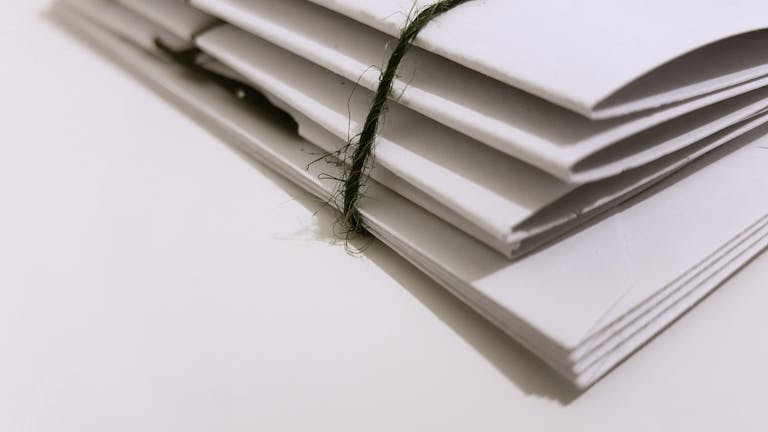Equipment Insurance for Small Businesses: What You Need to Know
In Australia’s dynamic business landscape, small businesses form the backbone of the economy, contributing significantly to employment and innovation. Whether you’re operating a local café, a construction service, or a digital design studio, your business likely relies on essential equipment. Protecting these valuable assets is not just wise—it’s essential. That’s where equipment insurance comes in.
In this article, we’ll explore how equipment insurance supports commercial asset protection, why it’s a crucial element of small business insurance, and how Australian business owners can ensure they’re fully covered.
What Is Equipment Insurance?
Equipment insurance, sometimes referred to as machinery or tools insurance, is a type of business cover designed to protect the machinery, tools, and equipment that your business relies on. This might include:
- Laptops and computers
- Specialist tools
- Manufacturing equipment
- Commercial kitchen appliances
- Construction machinery
- Electronic systems used in service delivery
Damage, theft, or breakdown of this equipment can significantly impact your operations. Equipment insurance ensures you can recover quickly, minimising downtime and loss of income.
Why Is Equipment Insurance Important for Small Businesses?
Small businesses typically operate on tighter margins than large corporations. This makes them more vulnerable to the financial impact of unexpected equipment loss or damage. Let’s explore the benefits:
1. Protects Critical Business Assets
Every business has specific tools that are vital for daily operations. If a bakery loses its ovens or a freelance photographer has their camera stolen, it can halt business entirely. Equipment insurance ensures these assets are protected, and in most cases, replaced or repaired quickly.
2. Minimises Business Interruption
Unforeseen incidents like fire, theft, or accidental damage can shut down operations. Equipment insurance helps you resume business sooner by covering the costs associated with repairing or replacing the damaged equipment.
3. Covers a Wide Range of Risks
Depending on your policy, equipment insurance can cover a broad spectrum of risks, including:
- Accidental damage
- Fire and natural disasters
- Theft and vandalism
- Mechanical or electrical breakdown
This extensive cover can be tailored to suit your specific business and industry.
4. Strengthens Commercial Asset Protection
Protecting your commercial assets is a critical component of your business strategy. Commercial asset protection helps maintain the value of your business and ensures continuity, even when things go wrong.
Who Needs Equipment Insurance?
Equipment insurance is essential across a wide range of industries, especially those that are equipment-intensive. Examples include:
- Trades and Construction: Builders, electricians, plumbers, and other tradies rely on expensive, portable tools.
- Hospitality and Food Services: Restaurants, bars, and catering services use specialised cooking and refrigeration equipment.
- Creative Industries: Photographers, designers, and videographers use high-end electronics and software.
- Manufacturing and Production: These businesses depend on heavy machinery and automated systems.
- Healthcare and Clinics: Diagnostic and treatment equipment is both expensive and essential for operations.
If you use any kind of specialised equipment in your day-to-day operations, then this type of insurance is worth serious consideration.
What Does Equipment Insurance Typically Cover?
While specific cover varies by insurer and policy, a standard equipment insurance policy in Australia will generally include:
- Theft of equipment from a secured location or vehicle
- Damage due to fire, flood, or storm
- Accidental damage during use or transport
- Mechanical or electrical failure
- Malicious damage caused by third parties
Some policies may even offer cover for temporary hire equipment, which can help maintain operations while you await repairs or replacements.
What Is Not Covered?
While equipment insurance is comprehensive, it’s important to understand its exclusions. Common exclusions include:
- General wear and tear or gradual deterioration
- Intentional damage or negligence
- Lack of proper maintenance
- Equipment used for non-business purposes
- Unspecified items (you must list or declare major equipment)
Before selecting a policy, review the Product Disclosure Statement (PDS) carefully to understand what’s covered and what isn’t.
How Much Does Equipment Insurance Cost?
The cost of equipment insurance in Australia depends on several factors:
- The value and type of equipment you are insuring
- The level of cover selected
- Your business location and risk profile
- Claims history
- Security measures in place (e.g., alarms, secure storage)
As a rough guide, premiums can range from a few hundred to several thousand dollars annually, depending on these factors. Customising your cover through a broker can help ensure you’re getting both value and protection.
How to Choose the Right Equipment Insurance Policy
Selecting the right insurance policy for your business requires a tailored approach. Here are some tips:
1. Conduct an Asset Audit
List all the equipment your business owns and determine its replacement value. This gives you a clear understanding of what needs to be insured.
2. Consider Industry-Specific Risks
Each industry has unique risks. For instance, tools in the construction sector are more prone to theft, while a commercial kitchen might be more susceptible to fire damage.
3. Work With a Broker
Insurance brokers can help you compare policies from different providers and tailor a package that suits your business. They also assist in navigating the claims process when needed.
4. Bundle With Other Covers
You can often bundle equipment insurance with other forms of small business insurance to reduce costs. These might include public liability, professional indemnity, or business interruption insurance.
5. Read the Fine Print
Always read the policy documents in full. Understand any sub-limits, excess payments, and claim procedures before signing on.
What to Do When You Need to Make a Claim
If the unexpected happens, follow these steps to make the claims process smoother:
- Notify your insurer or broker immediately
- Document the loss or damage with photos, receipts, or serial numbers
- File a police report in case of theft or malicious damage
- Complete all claim forms as accurately as possible
- Provide supporting documents such as invoices, repair quotes, or maintenance logs
Timely and thorough documentation is key to a fast and successful claim.
Case Study: Equipment Insurance in Action
Imagine a Sydney-based landscaping business. One morning, the owner discovers that several pieces of machinery—including a ride-on mower and chainsaw—have been stolen from their locked trailer. Without these tools, the business cannot complete scheduled work, which risks upsetting long-standing clients.
Thanks to a comprehensive equipment insurance policy, the business is reimbursed for the full value of the stolen items within a matter of weeks. In the meantime, the policy also covers the cost of hiring temporary equipment, ensuring minimal disruption to their workflow.
This real-world example illustrates how equipment insurance can save small businesses from potentially devastating losses.
Future-Proofing Your Business
Technology and equipment evolve rapidly. To stay competitive, small businesses often invest heavily in upgrading their gear. Protecting these investments with the right insurance means you’re not just covering your current assets—you’re also building resilience for the future.
Regularly reviewing your policy is essential. As you grow and acquire new equipment, ensure your cover is updated to reflect those changes.
Conclusion
For small business owners in Australia, equipment insurance is more than just a safety net—it’s a cornerstone of smart business management. From theft and damage to breakdowns and downtime, the right policy can help you recover quickly and keep your operations moving.
If you’re looking to build a robust insurance strategy that includes equipment, public liability, and more, a tailored approach is key. It not only protects your assets but also gives you peace of mind to focus on what matters most—running and growing your business.
Ready to Protect Your Business?
Contact Sirius Insurance today to learn how we can help you tailor an equipment insurance solution that meets your unique needs. Whether you’re starting out or scaling up, our expert brokers are here to support your success every step of the way.







